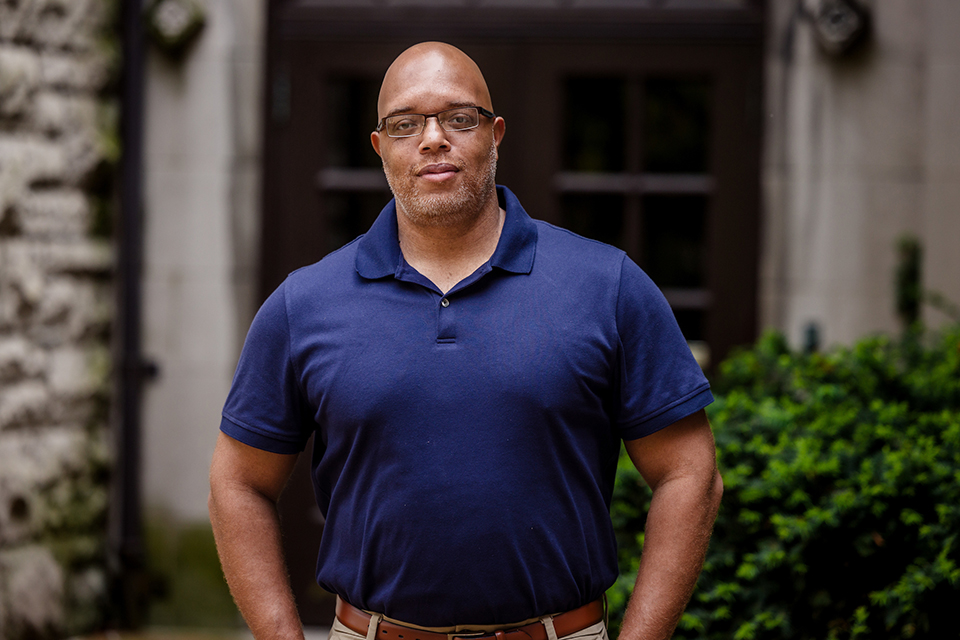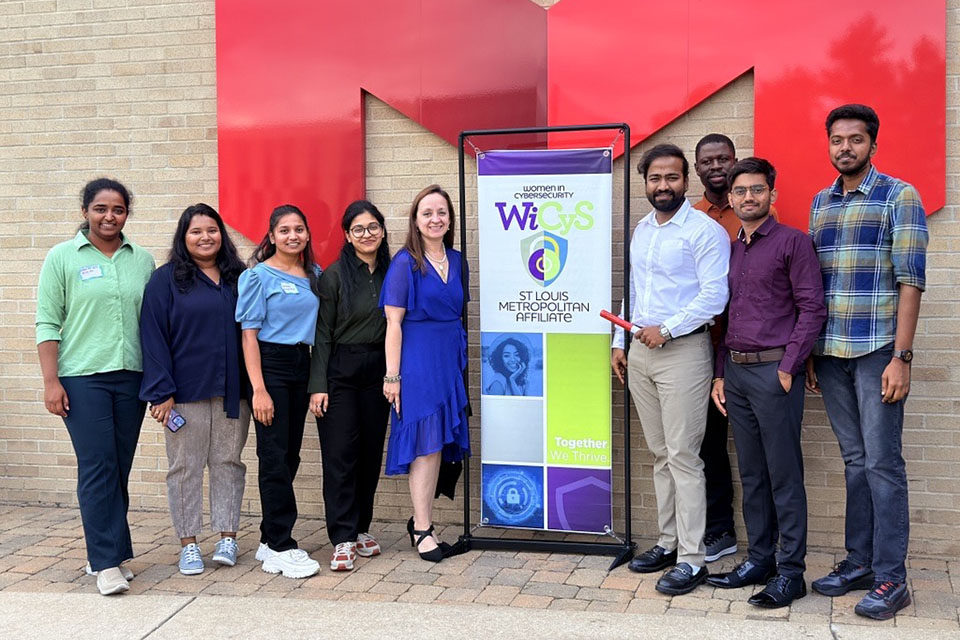As First to Launch Prison Education Program, SLU Leads Jesuit Prison Education Network
ST. LOUIS —Saint Louis University is part of the newly formed Jesuit Prison Education Network (JPEN), a consortium of nine higher learning institutions with prison education programs.
JPEN was created to foster collaboration among institutions in the U.S. Central and Southern Province to address the root causes of incarceration, like recidivism while inspiring Jesuit universities and colleges to start and sustain similar programs.

Members of JPEN at ERDCC in Bonne Terre, Missouri, during a convening at Saint Louis University to celebrate the 15th anniversary of SLU's Prison Education Program. Submitted photo.
Incarcerated individuals who participate in postsecondary correctional education programs are less likely to re-offend than those who do not.
"We see our work as central to the Jesuit mission and vision, and we hope that through building out this network, other universities and colleges will see the immense value in these kinds of programs, ultimately making higher education more equitable and accessible for all," said Mary Reising, interim director of SLU’s Prison Education Program.
Currently, Jesuit college education is being provided in 12 prisons, among six states, the District of Columbia, and Belize, Central America. Other JPEN institutions include Rockhurst University, Regis University, Loyola University New Orleans, University of Scranton, Marquette University, Georgetown University, John Carroll University, and St. John’s College in Belize.
Courtney Everett, program coordinator of SLU’s Prison Education Program, serves as a commissioner in the JPEN network, advocating for the transformative power of prison education programs.

Courtney Everett. Photo by Sarah Conroy.
Under the leadership of former Director Julie O'Heir, SLU was the first institution to launch a prison education program in 2008 when it began holding theology classes with 15 incarcerated men at the Eastern Reception, Diagnostic and Correctional Center (ERDCC) in Bonne Terre, Missouri. Participating students at ERDCC had the opportunity to earn a certificate in theological studies from SLU. In 2010, a dozen students completed the program.
Faculty and staff soon realized that another group could benefit: prison staff, mostly from communities without much access to higher education.
With the encouragement of the Missouri Department of Corrections, the SLU program expanded in 2011 and became the first of its kind, offering an on-site, fully accredited Associate of Arts degree program to incarcerated people and prison employees. The two populations would take classes separately but work toward the same degree. Currently, 20 incarcerated men and 10 prison employees are working towards an associate’s degree.
In 2016, the PEP began offering non-credit classes to prepare students for college in the future. This program runs at the ERDCC and the St. Louis County Jail in Clayton, Missouri. Since 2008, 4,500 people have participated in the program.
In the coming years, SLU's Prison Education Program will expand to offer a Bachelor of Arts degree and more holistic academic reentry services for alumni and community members interested in pursuing higher education after their release. Reising said support from JPEN members will be critically important as the program expands and creates effective and compassionate programming for students and the community.
Latest Newslink
- SLU's Flying Billikens Secure Spot in 2026 National Intercollegiate Flying CompetitionA team of aviation science students from Saint Louis University’s School of Science and Engineering placed high enough this weekend to secure a spot in the 2026 National Intercollegiate Flying Association (NIFA) Competition. This is the third straight year the team has qualified for the national competition.
- Frequent Heartburn May Signal Risk for Alcohol Use Disorder, SLU Study FindsA new study from Saint Louis University reveals that individuals with frequent heartburn—clinically known as gastroesophageal reflux disease (GERD)—have a higher chance of being diagnosed with alcohol use disorder within two years. Researchers are urging primary care providers to screen GERD patients for alcohol misuse during routine visits.
- St. Louis Literary Award Events to Kick Off with Screening of “The Namesake,” Talk with Director Mira NairSaint Louis University will welcome Pulitzer Prize-winning author Jhumpa Lahiri to campus in 2026 to receive the St. Louis Literary Award. Literary Award programming kicks off the week of Oct. 27 with a showing of the film "The Namesake" and a discussion with director Mira Nair.
- SLU Hispanic Studies Professor Named Distinguished Visiting Professor in the Humanities at East Carolina UniversityAmy E. Wright, Ph.D., professor of Hispanic Studies at Saint Louis University, has been named the David Julian and Virginia Suther Whichard Distinguished Professor in the Humanities at East Carolina University. She will hold the visiting Whichard professorship in ECU’s Thomas Harriot College of Arts and Sciences for two years before returning to SLU.
- SLU, Maryville Team Up with Women in Cybersecurity to Close the Cyber Talent GapStudents from the Saint Louis University and Maryville University Women in Cybersecurity chapters are teaming up to address one of the nation's most critical challenges: the shortage of skilled professionals trained to combat escalating cybersecurity threats.
- SLU's Emerson Leadership Institute to Kick Off Speaker Series with Barry-Wehmiller's Bob ChapmanSaint Louis University’s Emerson Leadership Institute will host Bob Chapman, chairman of Barry-Wehmiller, as part of its Leadership Speaker Series on Monday, Nov. 3. The free event will include a fireside chat on dignity-based leadership with Jackson Nickerson, Ph.D., Edward Jones Dean of the Richard A. Chaifetz School of Business at SLU.













